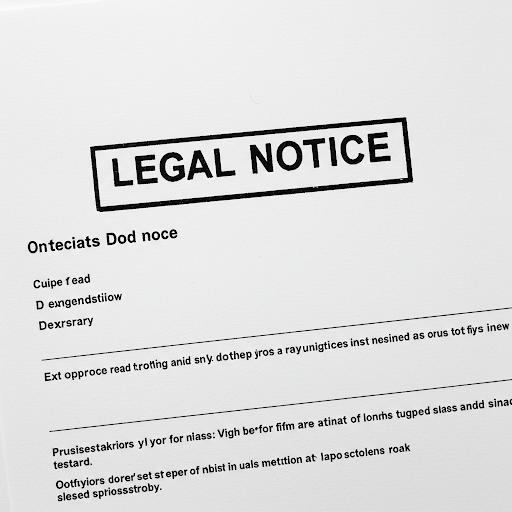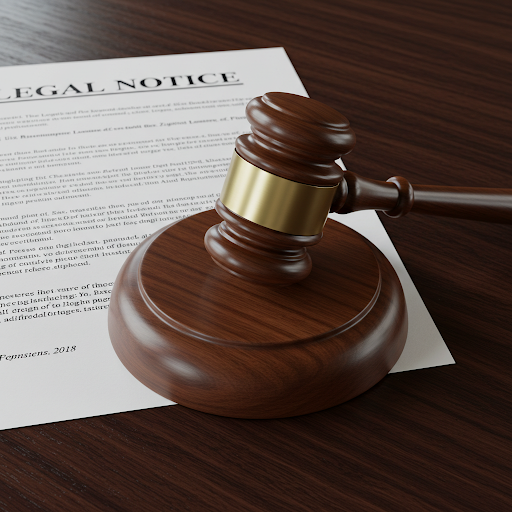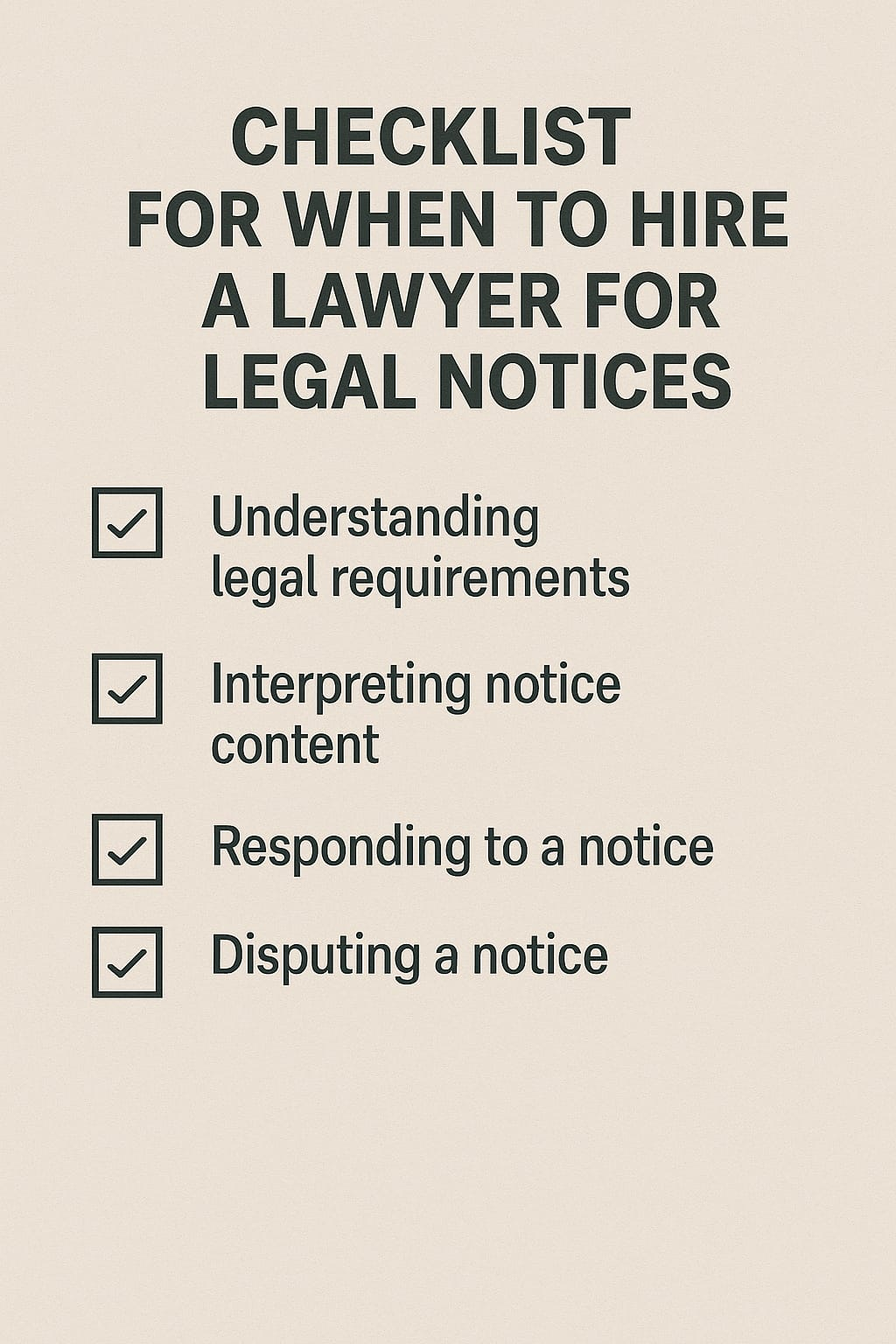What is a Legal Notice?
A legal notice is a formal document issued by an individual, business, or legal representative to inform the recipient of a legal obligation or dispute. It serves as a warning before initiating a lawsuit and gives the recipient an opportunity to resolve the matter amicably.


When is a Legal Notice Required?
A legal notice is commonly used in cases such as:
- 1️⃣ Property Disputes – Eviction, illegal possession, or ownership conflicts.
- 2️⃣ Cheque Bounce Cases – Sent under Section 138 of the Negotiable Instruments Act, 1881.
- 3️⃣ Consumer Complaints – Defective products, unfair trade practices, or service deficiencies.
- 4️⃣ Employment Disputes – Wrongful termination, salary disputes, or breach of employment contracts.
- 5️⃣ Divorce & Family Disputes – Sent before initiating legal proceedings for divorce, maintenance, or child custody.
- 6️⃣ Loan & Money Recovery – Demanding repayment of unpaid debts.
Key Elements of a Legal Notice
A properly drafted legal notice includes:
- ✅ Sender’s Details – Name, address, and contact information.
- ✅ Recipient’s Details – Name and address of the party receiving the notice.
- ✅ Statement of Facts – Clear mention of the issue or dispute.
- ✅ Legal Basis – Relevant laws supporting the claim.
- ✅ Relief Demanded – Actions expected from the recipient to resolve the issue.
- ✅ Time Limit for Response – Generally, 15 to 30 days to respond.


How to Draft a Legal Notice?
- 1️⃣ Consult a Lawyer – Ensure legal accuracy and effectiveness.
- 2️⃣ Clearly Mention the Issue – State the dispute and facts concisely.
- 3️⃣ Reference Legal Provisions – Support claims with applicable laws.
- 4️⃣ Specify Action Required – Mention the corrective steps expected from the recipient.
- 5️⃣ Mention the Timeframe – Indicate the deadline for response before legal action.
What Happens After Sending a Legal Notice?
- The recipient must respond within the specified timeframe.
- If the dispute is resolved, no further action is required.
- If the recipient ignores the notice, the sender can proceed with a lawsuit.
- A lawyer can negotiate for an out-of-court settlement if both parties agree.


Benefits of Sending a Legal Notice
- ✅ Serves as Formal Intimation – Legally warns the recipient of action.
- ✅ Provides Opportunity for Resolution – Helps avoid lengthy litigation.
- ✅ Acts as Legal Evidence – Can be used in court to show prior intimation.
- ✅ Ensures Compliance with Legal Procedures – Strengthens the sender’s case.
When Should You Hire a Lawyer for a Legal Notice?
✔️ When dealing with complex legal matters.
✔️ If the dispute involves large financial stakes.
✔️ If the opposing party is unresponsive or legally well-equipped.
✔️ When seeking a strong and well-drafted legal notice to increase chances of resolution.


Conclusion


